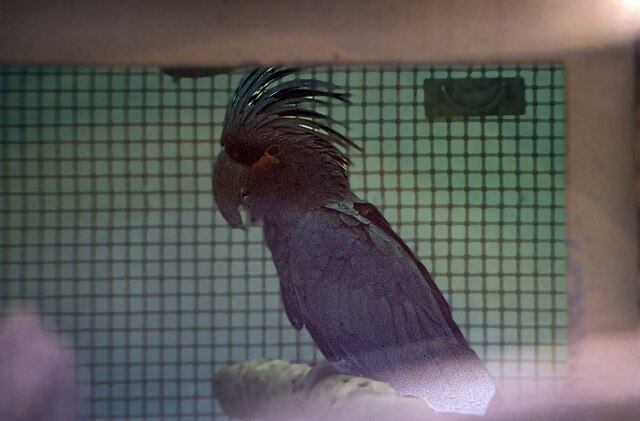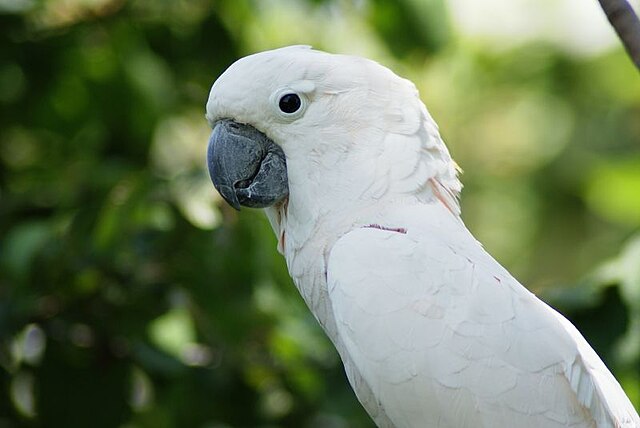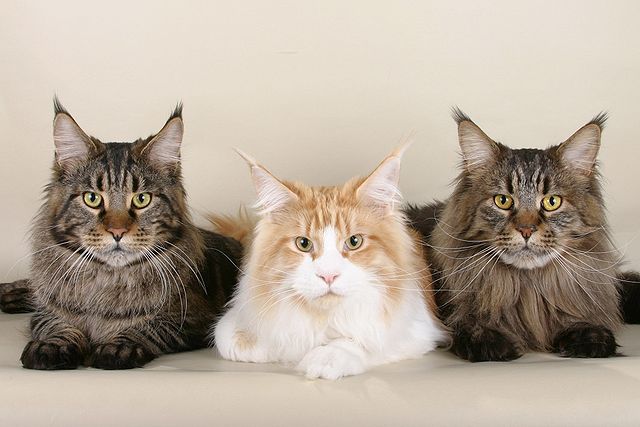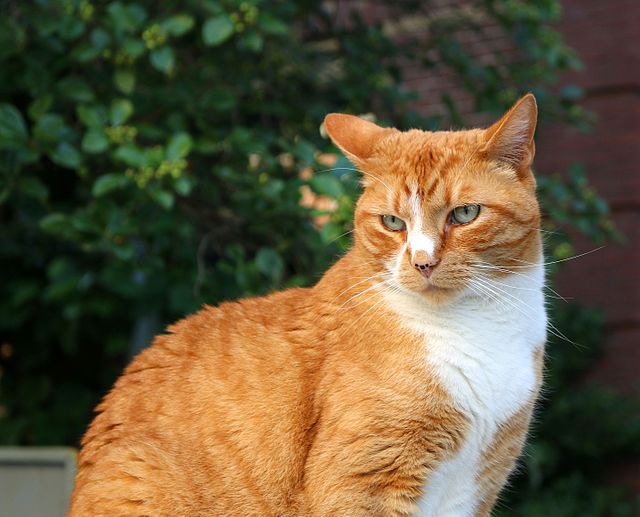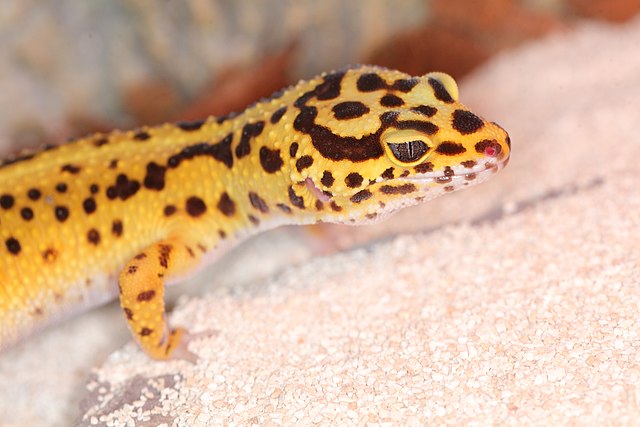Black palm cockatoos are captivating and charismatic avian creatures that have captured the hearts of bird enthusiasts worldwide. In this comprehensive guide, we’ll delve into every facet of these remarkable birds, shedding light on their unique characteristics, behavior, care, and much more. Whether you’re a prospective owner, a seasoned aviculturist, or simply intrigued by these feathered wonders, you’re in for a treat!
Black Palm Cockatoo Overview
The Majesty of Appearance
Black palm cockatoos, scientifically known as Probosciger aterrimus, are a sight to behold. With their striking ebony plumage and elegant red cheek patches, they stand out as one of the most visually captivating parrot species. What’s particularly unique is their massive beak, which hints at their immense strength.
Habitat and Range
Native to the rainforests of New Guinea and nearby islands, black palm cockatoos are regionally specific birds. These forests serve as their sanctuary, providing them with essential resources and protection. However, due to habitat loss, they are classified as vulnerable, emphasizing the importance of conservation efforts.
Behavior and Personality
When it comes to behavior and personality, black palm cockatoos are in a league of their own. These avian wonders possess a captivating blend of intelligence, sociability, and distinct characteristics that set them apart from other parrot species.
Intelligence Beyond Measure
Black palm cockatoos are renowned for their exceptional intelligence. Their ability to solve problems, learn tricks, and even mimic sounds from their environment showcases their cognitive prowess. This intelligence also makes them highly trainable, making them a favorite among parrot enthusiasts seeking interactive companions.

Vocal Virtuosos
One of the most fascinating aspects of their personality is their vocalization. These birds, like most cockatoos, are not only proficient talkers but also adept mimickers. They can replicate sounds ranging from doorbells to phone ringtones with astonishing accuracy. This vocal dexterity adds an element of charm and surprise to your interactions with them.
Sociable Creatures
In the wild, black palm cockatoos exhibit strong social bonds, often forming tight-knit groups with their fellow feathered friends. They engage in communal activities, such as foraging and vocalizing, reinforcing their social connections. When kept as pets, they readily extend this social nature to their human companions.
Devotion and Affection
Once a bond is formed, black palm cockatoos are known for their deep devotion to their human caregivers. They thrive on companionship and interaction, often seeking physical affection through cuddling and preening. However, this affectionate nature also means that they can become emotionally dependent, so it’s essential to strike a balance in your interactions with them.
Expressive Body Language
Understanding their body language is crucial in deciphering their moods and needs. When content, they may puff up their feathers, displaying their magnificent plumage. Conversely, when agitated or fearful, they may vocalize loudly or exhibit defensive postures. Learning to interpret these signals is key to providing them with a happy and stress-free environment.
Challenges of Their Personality
While their intelligence and personality traits make them endearing companions, they also present challenges. Black palm cockatoos can be strong-willed and may exhibit behaviors like screaming or feather plucking if they are bored or neglected. Therefore, mental stimulation through toys, puzzles, and regular interaction is vital to keeping them happy and engaged.
In summary, the behavior and personality of black palm cockatoos are a captivating blend of intelligence, sociability, and emotional depth. Their ability to bond with their human companions and their vocal talents make them enchanting additions to any household.
Diet and Feeding
When it comes to the well-being of your black palm cockatoo, nutrition plays a pivotal role. These magnificent birds have specific dietary needs that, when met, contribute to their overall health, vitality, and longevity. In this section, we’ll explore what makes the ideal diet for black palm cockatoos and how to ensure their nutritional needs are met.
In their natural habitat, black palm cockatoos have a diverse diet that includes nuts, fruits, seeds, and even insect larvae. This variety provides them with essential nutrients and keeps their diet balanced. In captivity, replicating this diversity is vital to their health.
The Essentials of a Black Palm Cockatoo’s Diet
Fresh Fruits and Vegetables
A substantial portion of your cockatoo’s diet should consist of fresh fruits and vegetables. These provide essential vitamins, minerals, and fiber. Offer a colorful array of options like apples, oranges, leafy greens, carrots, and broccoli. Be sure to wash and prepare these foods to remove pesticides or chemicals.
High-Quality Parrot Pellets
Complementing their fresh produce, high-quality parrot pellets should be a staple in their diet. These specially formulated pellets are designed to meet a cockatoo’s nutritional requirements. Opt for pellets that are free from artificial additives and fillers.
Nuts and Seeds in Moderation
While nuts and seeds are a natural part of their diet, they should be offered in moderation. These treats are calorie-dense and can lead to obesity if overindulged. Incorporate them as occasional rewards or for mental stimulation through foraging toys.

Mealtime Recommendations
Consistency Matters
Establish a consistent feeding schedule for your black palm cockatoo. Providing meals at the same times each day helps regulate their metabolism and creates a sense of routine.
Fresh Water Supply
Access to clean and fresh water is paramount. Ensure that your cockatoo always has access to a clean water source. Change the water daily to prevent contamination.
Monitoring and Adjustments
Keep a watchful eye on your bird’s weight and overall health. Any sudden changes in appetite, weight loss, or irregular behavior may indicate health concerns. Consult with an avian veterinarian for guidance on adjustments to their diet.
Special Considerations for Black Palm Cockatoo Diet
Calcium and Vitamin D3
Black palm cockatoos are prone to calcium deficiency, which can lead to health issues like soft beaks and bones. To prevent this, provide calcium-rich foods like broccoli and calcium supplements if recommended by your vet. Exposure to natural sunlight or UV lamps can help with vitamin D3 synthesis.
Sugar and High-Fat Foods
Avoid sugary and high-fat foods like chocolate and processed snacks, as these can be harmful to your bird’s health. Stick to natural, wholesome options to keep their diet in check.
In summary, a well-rounded and nutritionally balanced diet is essential for the health and happiness of your black palm cockatoo. By offering a mix of fresh fruits and vegetables, high-quality pellets, and the occasional treat, you can ensure that your feathered friend thrives.
Housing and Care
When it comes to housing, black palm cockatoos need spacious enclosures or aviaries to accommodate their large size and active nature. Providing plenty of toys, perches, and mental stimulation is vital for their well-being.
Health Matters
Regular veterinary check-ups are a must for these birds, as they can be susceptible to various health issues, including respiratory problems and beak abnormalities. Ensuring a clean and safe environment is equally important.
Breeding and Reproduction
Nesting Behavior
Breeding black palm cockatoos in captivity requires careful attention to their natural nesting behaviors. Providing a suitable nesting box and maintaining the right conditions can encourage successful reproduction.
Chicks and Parenthood
Black palm cockatoos are devoted parents, sharing the responsibilities of incubation and chick-rearing. It’s a sight to behold when they rear their fluffy offspring.

Common Health Issues
Ensuring the good health of your black palm cockatoo is a top priority for any responsible owner. These majestic birds, while hardy, are susceptible to certain health issues that require vigilance, preventative measures, and prompt attention. In this section, we’ll explore some common health concerns associated with black palm cockatoos and how to safeguard their well-being.
Feather Plucking and Self-Mutilation
One of the most prevalent health concerns among black palm cockatoos is feather plucking. This behavior involves the bird excessively plucking and chewing on its feathers, often to the point of self-mutilation. Feather plucking can have various underlying causes, including stress, boredom, illness, or nutritional deficiencies.
Prevention and Management
- Environmental Enrichment: To prevent boredom and stress, provide plenty of mental and physical stimulation. This can include toys, puzzles, and interaction with you.
- Nutritional Balance: Ensure your bird’s diet is well-balanced and meets its nutritional needs. Supplements may be necessary under the guidance of a veterinarian.
- Regular Veterinary Check-Ups: Schedule routine check-ups with an avian veterinarian to identify and address any potential health issues early.
Respiratory Problems
Black palm cockatoos can be prone to respiratory problems, which may manifest as wheezing, coughing, or nasal discharge. These issues can stem from infections, environmental irritants, or a damp living environment.
Prevention and Management
- Clean Environment: Maintain a clean and dry living environment for your bird, as dampness can exacerbate respiratory issues.
- Avoid Irritants: Keep your cockatoo away from tobacco smoke, aerosol sprays, and other airborne irritants.
- Proper Ventilation: Ensure proper airflow in their enclosure, and consider using air purifiers to filter out pollutants.
Beak Abnormalities
Beak abnormalities, such as overgrowth or deformities, can occur in black palm cockatoos. These issues can affect their ability to eat and interact with their environment.
Prevention and Management
- Chew Toys: Providing appropriate chew toys can help naturally wear down the beak.
- Regular Beak Trims: Schedule regular beak trims with a qualified avian veterinarian to keep the beak in optimal condition.
- Dietary Considerations: Ensure your bird’s diet is nutritionally balanced, as certain deficiencies can contribute to beak problems.
Seeking Veterinary Care
It’s crucial to be proactive about your black palm cockatoo’s health. If you observe any concerning symptoms or changes in behavior, consult with an avian veterinarian immediately. Regular check-ups are also essential for preventive care.
Where to Find Black Palm Cockatoos
If you’re considering adding a black palm cockatoo to your family, it’s crucial to source them from reputable breeders or rescue organizations. Ensure that the acquisition is legal, adhering to local and international regulations.
Conclusion
In conclusion, black palm cockatoos are truly exceptional birds, admired for their beauty, intelligence, and engaging personalities. Owning one can be a rewarding experience, but it comes with responsibilities. By understanding their needs, providing proper care, and participating in conservation efforts, we can ensure that these magnificent creatures continue to grace our world with their presence.

